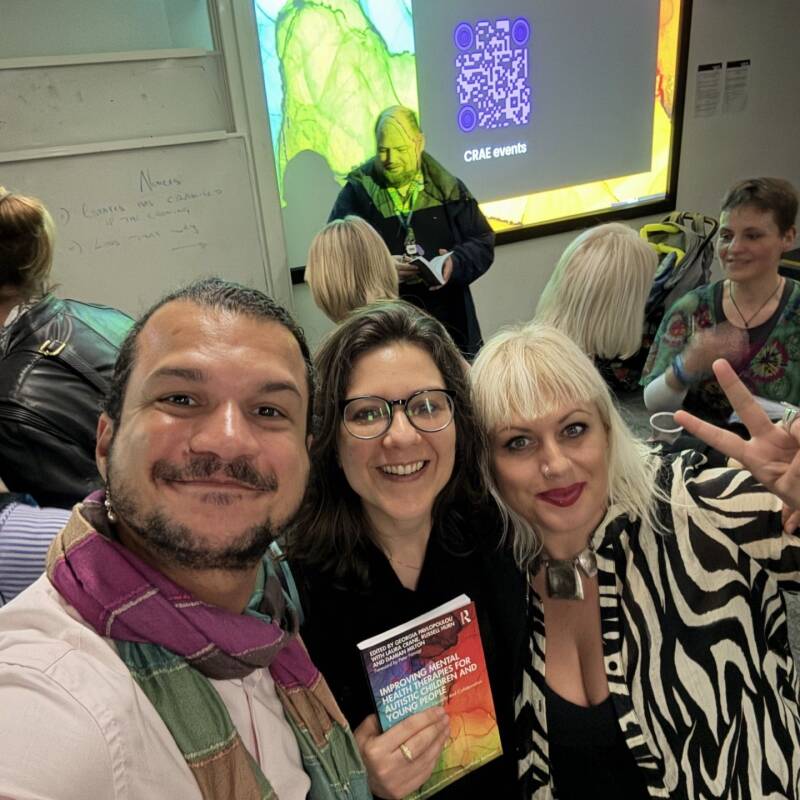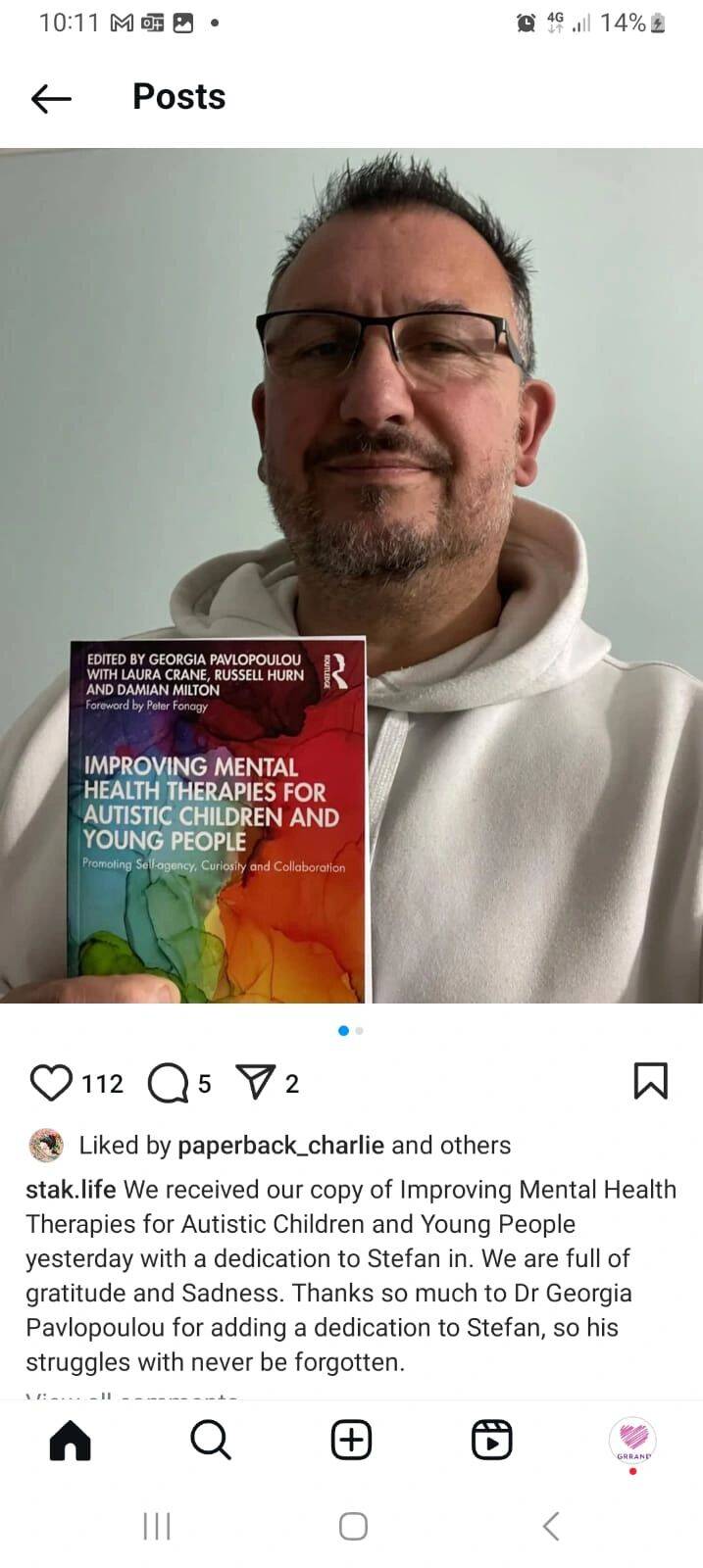
By Dr Ana Maria Butura
I recently had the privilege of attending the book launch for Improving Mental Health Therapies for Autistic Children and Young People - and I left feeling deeply moved, emotionally charged, and above all, hopeful.
This book marks an important first step towards systemic and cultural change. It brings together a range of voices - clinicians, educators, researchers, parents, and most importantly, autistic people themselves - to ask: What if our systems weren’t built to fix autistic people, but to support and celebrate them?
Throughout its chapters, the book explores how we can reshape therapy, schools, and services to work for and with autistic children and young people. From therapeutic practice and classroom strategies, to shifting the language we use and recognising the value autistic individuals bring to our communities, this is a call to action. A call to stop viewing neurodivergence as a problem to be solved, but instead as a form of human diversity to be understood, affirmed, and supported. It’s a book written not just with expertise, but with heart. It challenges us to do better - and then tells us how.
"The launch event itself was a reflection of the ethos behind the book. It opened with a powerful introduction by Georgia Pavlopoulou, one of the lead editors. She spoke with warmth and clarity about the genesis of the book, the collaborative process behind its creation, and the driving force behind it all: love. Love for autistic children and young people. Love in the form of active listening, affirmation and empathy and joint planning. Love as the foundation for change."
The panel that followed brought together contributors, practitioners, parents, and people with lived experience. The book was dedicated to a young boy who left us too early, and the reflections from his family deeply underscored the urgent need for meaningful change. It was a poignant reminder that this work is not just academic - it’s life-saving.
As an ADHD researcher - and someone with ADHD myself - I found so many moments in the event that resonated. While every neurodivergent experience is unique, the shared emotional labour of being neurodivergent in a world that wasn’t built for us was profoundly relatable.
And, for the first time in a long time, I felt hope.
Hope that things are finally starting to change. Hope that the next generation of neurodivergent children might not experience the same things so many of us have. Hope that services, systems, and attitudes will begin to shift - not just slightly, but radically - so that neurodivergent people can live full, and authentic lives.
"This book is a powerful call to reimagine our systems with and for neurodivergent children. It’s not about fixing autistic people—it’s about changing the world around them. 💛
Whether you’re a teacher, therapist, parent, policymaker, or simply someone who cares—please read this book. Let it challenge you. Let it guide you. Let it change you. Let it remind you that neurodivergent people are not broken - and the systems that fail them are not unchangeable."
📘 Find out more and get your copy here:
👉 https://www.routledge.com/Improving-Mental-Health-Therapies-for-Autistic-Children-and-Young-People-Promoting-Self-agency-Curiosity-and-Collaboration/Pavlopoulou-Crane-Hurn-Milton/p/book/9781032372525





Add comment
Comments